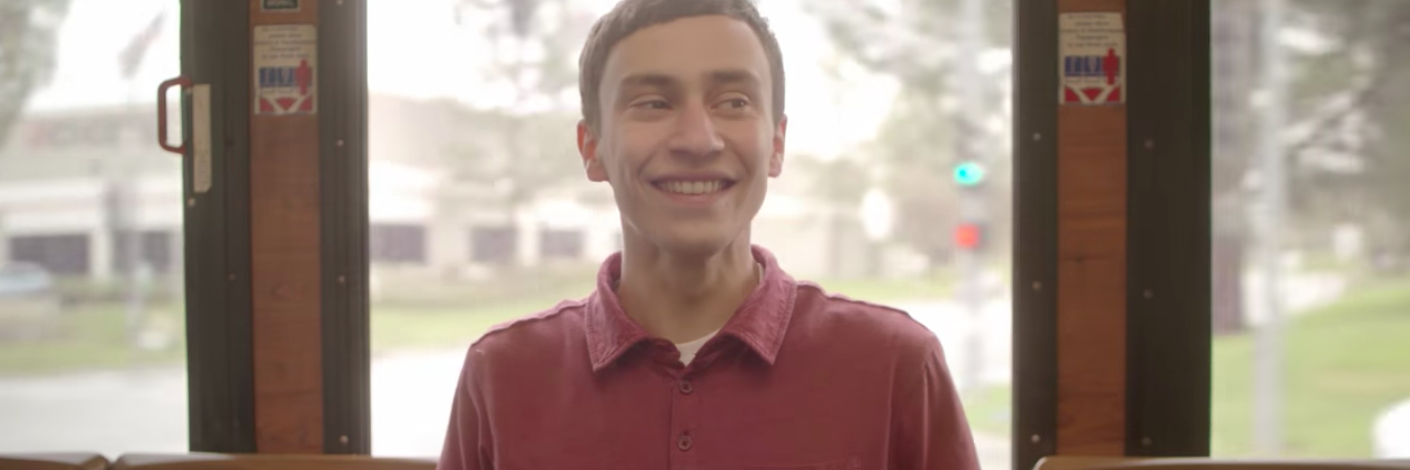What I'd Like to See in Season 2 of 'Atypical' as a Viewer on the Autism Spectrum
A new Netflix series, “Atypical,” recently premiered. It looks at Sam Gardener, a teen with autism. It depicts his navigation through high school, trying to find a relationship and other aspects of his journey. The series has recently been renewed for a second season! As someone who binge watched Season 1 and is excited for a new season in 2018, I wanted to share my thoughts on the first season and what I’d love to see in the second.
Here’s what I loved about Season 1 of Atypical
They hired an actor with autism to play a character on the spectrum
There’s been a movement in Hollywood recently to audition actors who share the same race or disability of the character they would play. RJ Mitte who plays Walter White Jr. in Breaking Bad actually has cerebral
palsy while playing a character that also has cerebral palsy. Mitte, along with countless other self-advocates, have spoken at length about this. I was happy to see that Anthony Jacques, a young man on the autism spectrum, played the character of Christopher, a friend of Sam’s who also happens to have autism.
Discussing relationships and empathy
Too often it seems the topic of autism and relationships falls through the cracks. A common misconception is that “people with autism lack empathy.” In 2014, I wrote a book called “Autism and Falling in Love”. I wanted to
spread awareness that this couldn’t be farther from the truth based on my experiences trying to find love as an adult with autism. While I didn’t agree with every scene where Sam is looking for love, there were some fantastic high points. One was the scene with Sam and his therapist. I found it meaningful to view a discussion of self-help tips that could help any person. The scene had dialogue where Sam brings up empathy. I found this very relevant to my own journey.
The importance of siblings
Siblings play such a huge role. In “Atypical,” Sam’s younger sister Casey plays a protective role for him, but also wants him to find love. I could instantly relate to this. One of my best friends has a brother on the spectrum who sees him in a similar way to how Casey treats Sam.
Looking to Season 2, here are some things I’d love to see happen
Hiring a full-time consultant who’s on the autism spectrum
“Nothing about us without us” is an often-used quote within our disability community and I think it rings true for any autism-related project. A consultant could also help bring more self-advocates to provide their perspectives, as autism is never a “one-size-fits-all” condition. I’ve had the wonderful opportunity since 2010 to consult on a few autism-related projects, including “Joyful Noise” and “Jane Wants A Boyfriend” (which looks at a woman with autism finding love) to bring a realistic portrayal of autism.
A scene where Sam locks his girlfriend in the closet left me a little worried. What would the reaction be from our community? Especially from some of my mentees who have autism and other disabilities. Would they be offended? While I’ve heard of similar situations, I (or another consultant on the spectrum) would advise caution and reiterate the need for sensitivity in a scene like this. (Note: Michelle Dean had the opportunity to consult on “Atypical” and having a second consultant who is actually on the spectrum to bring in another perspective could help.)
Looking at other areas young adults with autism have to navigate
While watching Season 1, I enjoyed seeing Sam succeeding at his job at a computer electronics store. Today in the United States, the majority of adults with autism are unemployed or underemployed, making this an important discussion topic. Sam’s boss seems to understand that he has been able to excel. This was one of the more compelling parts of the show for me, and I think the topic could be expanded further in future seasons.
A peer mentor for Sam who has autism, along with other representations of autism on the show
If you’ve met one individual with autism, you’ve met one individual with autism. While Sam has a friend with autism in Christopher, it would be great to find ways for Sam and his family to interact with others on the more severe side of the spectrum. I was anticipating such an interaction when Sam’s mom attended a support group
meeting of other parents who have loved ones on the spectrum. Depicting a character who could play a peer mentor for Sam and who can relate to Sam’s successes and challenges in life would be powerful.
Flashbacks of Sam growing up
Many parents I spoke with, who watched the first season, hoped for examples of Sam’s life growing up (his initial autism diagnosis, starting school, etc.).
Overall, I would consider Season 1 of “Atypical” a success.
As I shared in my recent review of another autism-related project, “The Good Doctor,” “Atypical” received mostly positive reviews (77 percent from critics and 97 percent from audiences on Rotten Tomatoes). The question moving forward for this series is how it will evolve as Sam has to traverse even more hurdles in his life. I think they are off to a fine start, and I’m excited to see where they go from here.
This article originally appeared on Kerry Magro’s website.
We want to hear your story. Become a Mighty contributor here.
Photo courtesy of Netflix.

